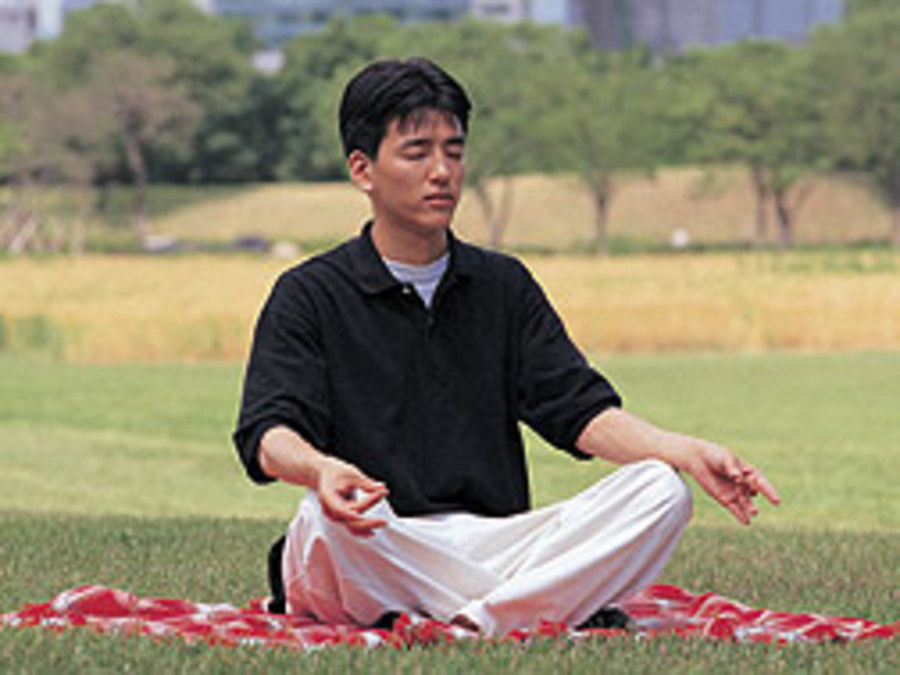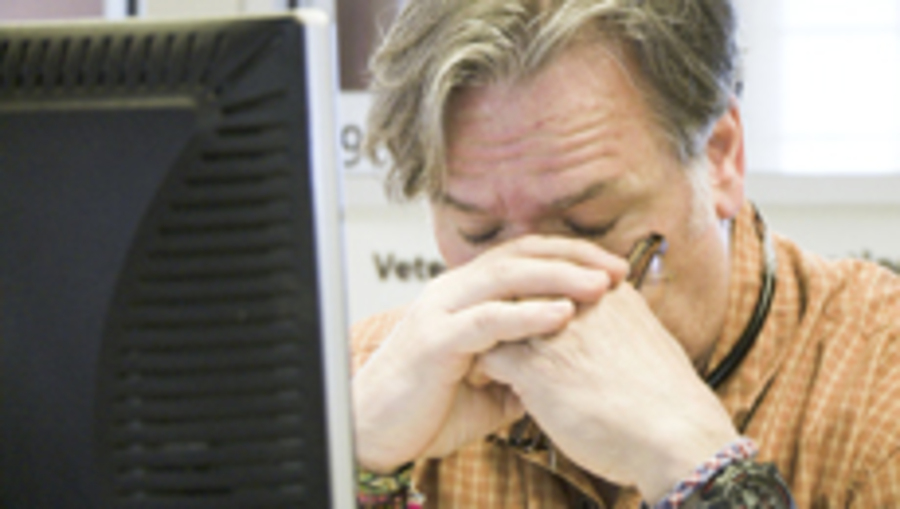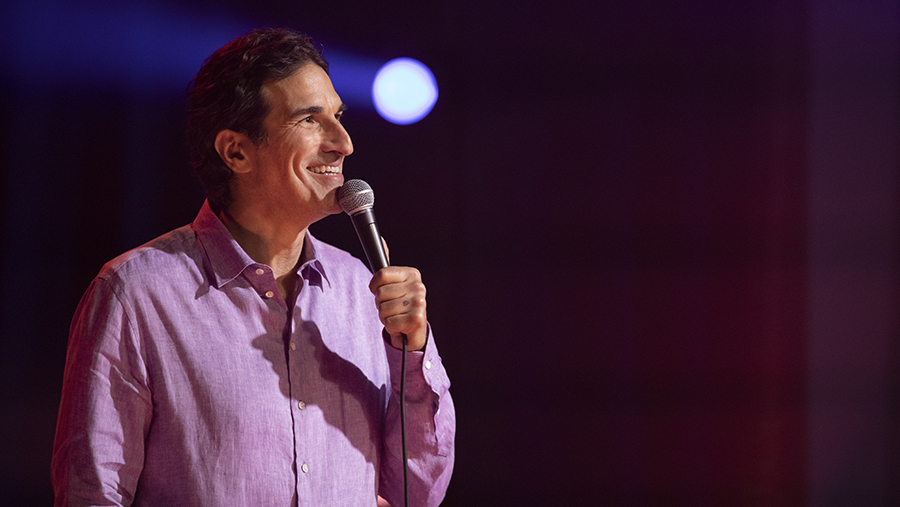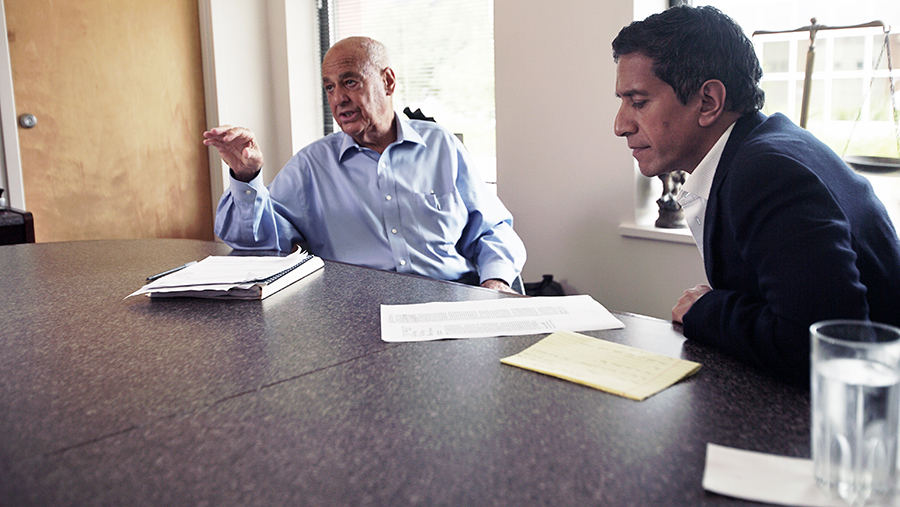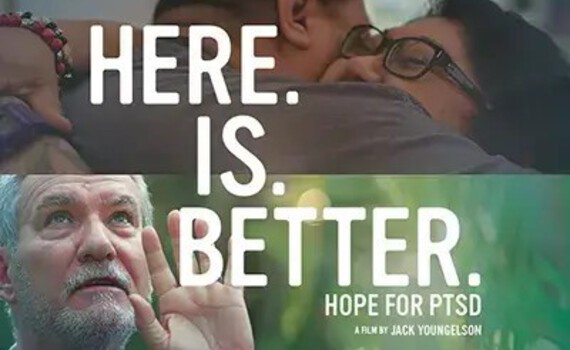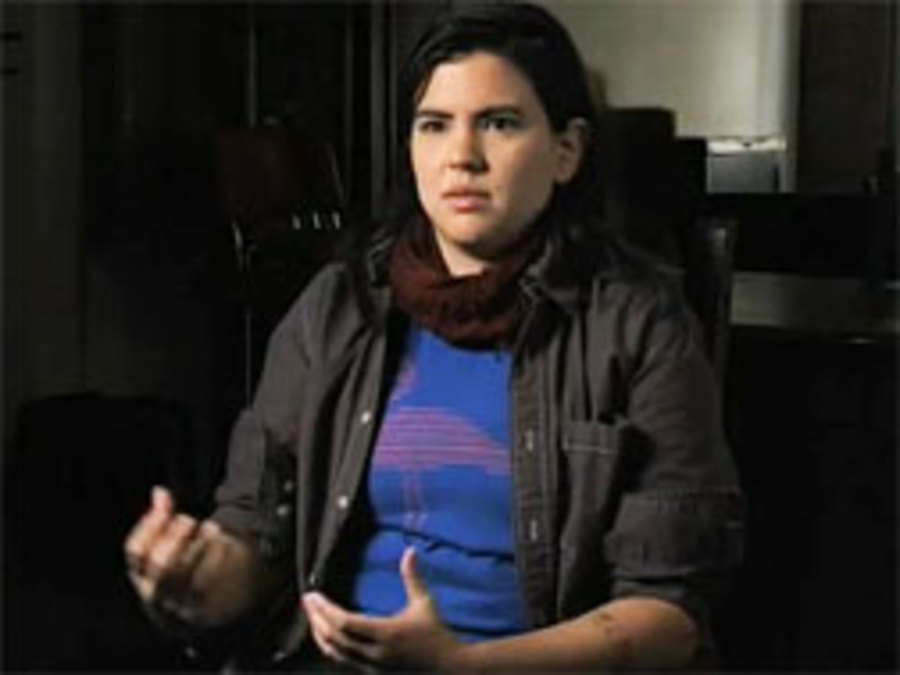 Try these videos to get started. Must be on campus or login with your COM account for off campus access.
Try these videos to get started. Must be on campus or login with your COM account for off campus access.
Want more on finding media? Try Articles & Media.
-
The Art of Grieving
Description
Following the untimely death of his 35-year-old brother, an artist immerses himself in a year-long painting project to process grief and answer the question, “how can society be better equipped to deal with the grieving process?”
-
Coping with Stress (29:54)
A certain amount of stress can actually enhance performance and productivity. However, continually high levels of stress have been linked to all of the leading causes of death in America, including heart disease, cancer, and lung ailments. This program analyzes the role of stress in day-to-day life and in overall physical and mental health. Sources of stress are identified, and techniques for managing stress are suggested. Information on how to improve personal communication—a powerful safety valve—is also provided.
-
HBO: Crisis Hotline: Veterans Press 1 (40:17)
Today, more soldiers are lost to suicide than on the battlefield. After serving their country overseas, many military veterans in their darkest moments turn to the unique services of the Veterans Crisis Line to help with traumas like post-traumatic stress, depression, homelessness and drug dependence. This 40-minute documentary is an intimate look at the vital work of several responders who provide life-saving intervention and desperately needed referrals through the 24-hour Veterans Crisis Line, which provides support and hope to active and retired service members. Directed by Ellen Goosenberg Kent (Wartorn: 1861-2010, Alive Day Memories: Home from Iraq), and produced by Dana Perry (Boy Interrupted), the film focuses on the intense, and at times chilling, calls received by the crisis line and the dedicated work of the responders and rescue coordinators+E14 who help distraught veterans find reasons to live. An HBO Production. An HBO Production.
-
HBO: Gary Gulman: The Great Depresh (01:14:27)
Comic and actor Gary Gulman stars in a 75-minute HBO comedy special, featuring Gulman speaking about mental health issues in a way that is both entertaining and poignant, mixed with short documentary interludes that provide insight into the comedian’s own mental health journey. In the special, Gulman also offers his hilarious observations on a number of other topics, including: his admiration for Millennial attitudes toward bullying, masculinity and sports; his love for basketball and why he tried to avoid playing football in high school; menacing TV news theme songs; and how his mother’s voice is always in his head. Filmed at the Roulette Intermedium in Brooklyn, Gary Gulman: The Great Depresh is directed by Michael Bonfiglio. An HBO Production.
-
HBO: One Nation Under Stress (01:09:00)
From acclaimed directors/producers Marc Levin and Daphne Pinkerson (HBO’s I Am Evidence, Class Divide) comes an enlightening HBO documentary that explores the causes and effects of chronic stress from scientific, economic and sociological perspectives. In investigating the recent three-year decline in U.S. life expectancy for the first time in a hundred years, neurosurgeon and Emmy®-award winning CNN chief medical correspondent Dr. Sanjay Gupta travels across the country, interviewing experts from a wide range of fields who share their insights on why we are experiencing so much stress, its effect on Americans, and its consequences for the health of the nation. Along the way, Gupta also speaks candidly with Americans struggling with stress-related ailments and loved ones lost to “deaths of despair,” particularly in communities facing economic and social instability. Shedding light on the origins and nature of stress, including its biological and social roots, as well as various treatments and strategies being developed to help cope with it, One Nation Under Stress is a timely and vital film that encourages us all to focus on the mental and emotional well-being of the nation, a process that involves education, enlightenment and empathy.
-
Here. Is. Better. (1:35:40)
HERE. IS. BETTER. chronicles the stories of four service men and women, whose grit, smarts, and perseverance are on full display as they allow cameras to witness their most deeply personal, inevitably tense, raw, and honest therapy sessions in real—time. The film seeks to bring understanding to how the human mind responds to trauma, to what a diagnosis of PTSD means, and how PTSD can impact daily life, far removed from a military setting. The film does not seek to be prescriptive, but rather illustrates how the right fit of trauma therapies and other beneficial modalities can transform darkness into light for these veterans who gave so much but came home with little understanding of what happened to them while serving their country. While veterans are more than twice as likely to have PTSD than civilians, the root causes of PTSD are wide—ranging. What needs to be understood is that trauma comes in all forms, including the impact of sexual or physical assault, natural disasters, abuse, exposure to violence, serious health issues, or the death of a loved one. Seemingly unexceptional events can adversely affect people in different professions, from frontline medical workers to EMS to grocery store clerks to delivery couriers. This film is meant to help veterans who have experienced trauma, but also to help audiences who may be experiencing the aftermath of any devastating event and have no idea where or how to find a path forward. As the world still grapples with the collective trauma of the pandemic, the need for effective mental health treatment — free from stigma — is more important than ever. HERE. IS. BETTER. illustrates how the seemingly impossible mission to heal may become possible as John, Teresa, Jason, and Tabitha choose to face each day with the bravery to seek help and the hope of what help can bring.
-
Maintaining Mental Health (28:24)
Like physical health, mental health needs to be actively nurtured—particularly as the tempo and complexity of modern living continues to increase. This program focuses on the subject of mental health at the personal level, offering suggestions on how to nourish—and, when necessary, reestablish—a sense of well-being. Maintaining Mental Health also discusses the crucial role community groups play in providing resources that encourage mental health maintenance.
-
PBS: Facing Our Fears (01:54:27)
What is the evolutionary advantage of negative emotions? And how can these emotions best be managed in daily life? This program investigates the strong feelings commonly regarded as obstacles to happiness—anger, fear, anxiety, and despair—to explain why they sometimes overwhelm the rational part of the brain. Among the cases profiled are a woman whose out-of-control temper jeopardizes her relationships; a teen struggling to overcome clinical depression; a college student whose fear of flying limits her life; and veterans seeking an effective treatment for post-traumatic stress disorder.
-
The Role of Emotional Healing (3:22)
Emotional crises or painful life experiences – situations or events – can lead to emotional trauma, and even to serious conditions such as post-traumatic stress disorder (PTSD). In this video, The Role of Emotional Healing, you will learn that emotional healing is the process of learning to deal with the strong negative emotions generated by trauma, by acknowledging, accepting and processing them.
-
Strategies to Thrive in Uncertain Times Series (34 Titles)
The series of taped webinars by graduates of the University of Pennsylvania's Masters in Applied Positive Psychology (MAPP) program features discussions with leaders, trainers, coaches, and positive psychology practitioners in the fields of well-being, business, relationships, and life skills. The programs were all filmed in the first several months of the COVID-19 pandemic and are designed to help viewers manage their well-being during difficult times.
![]() Try these videos to get started. Must be on campus or login with your COM account for off campus access.
Try these videos to get started. Must be on campus or login with your COM account for off campus access.
